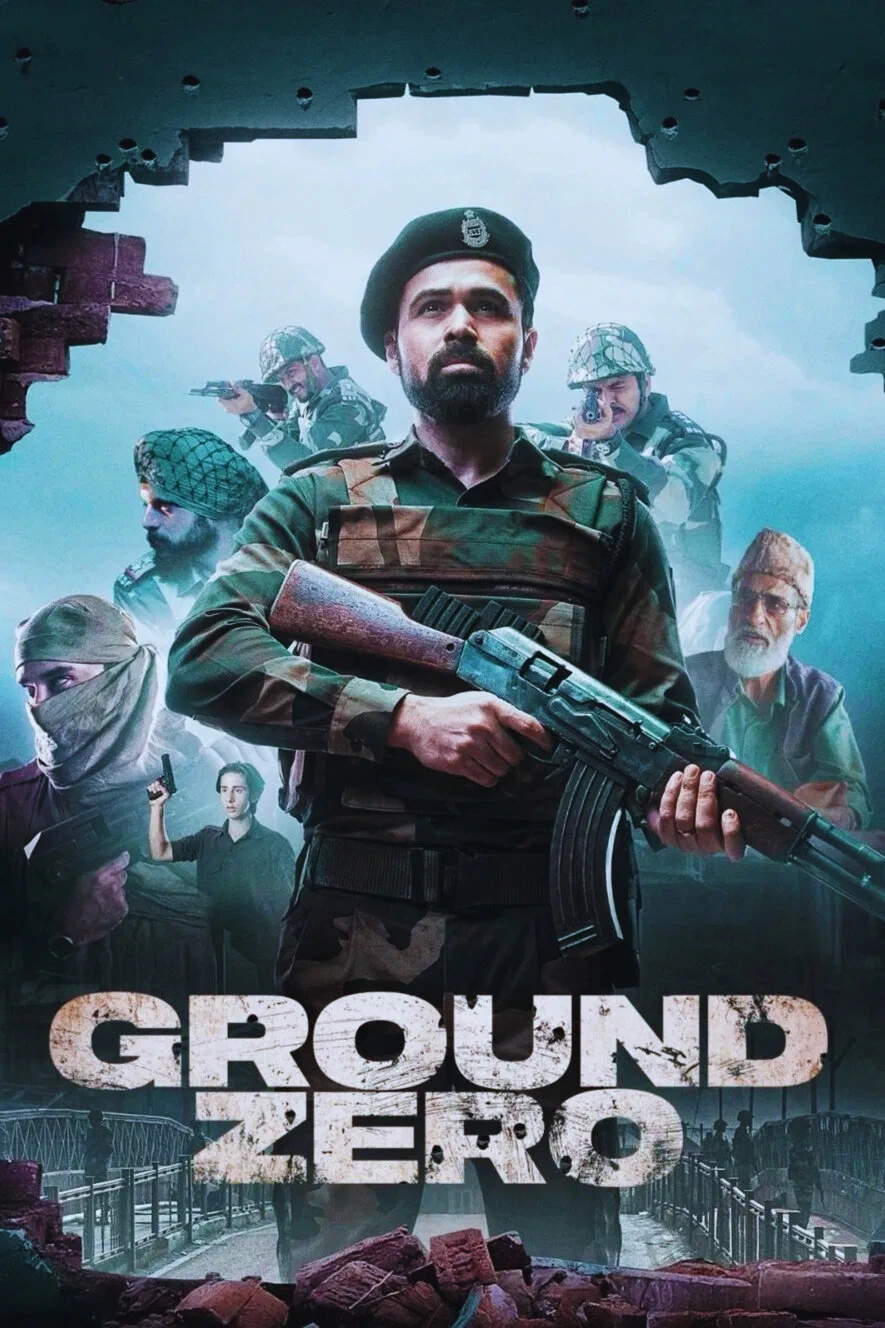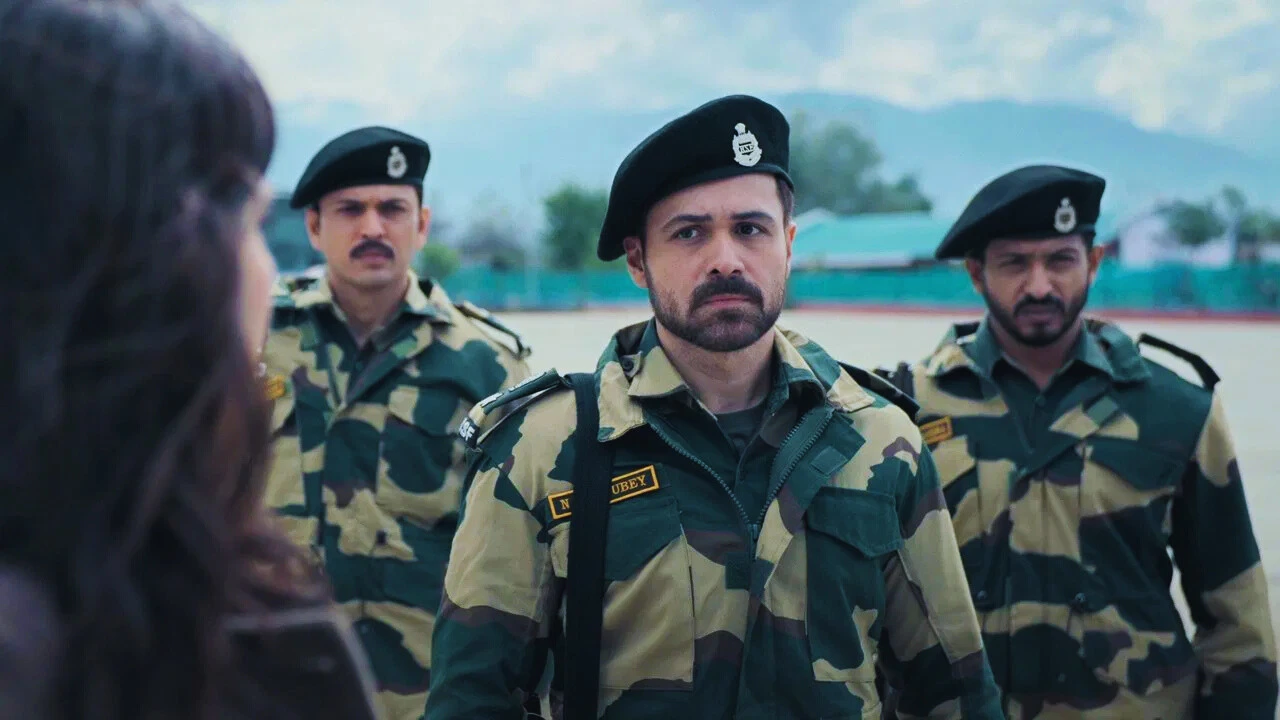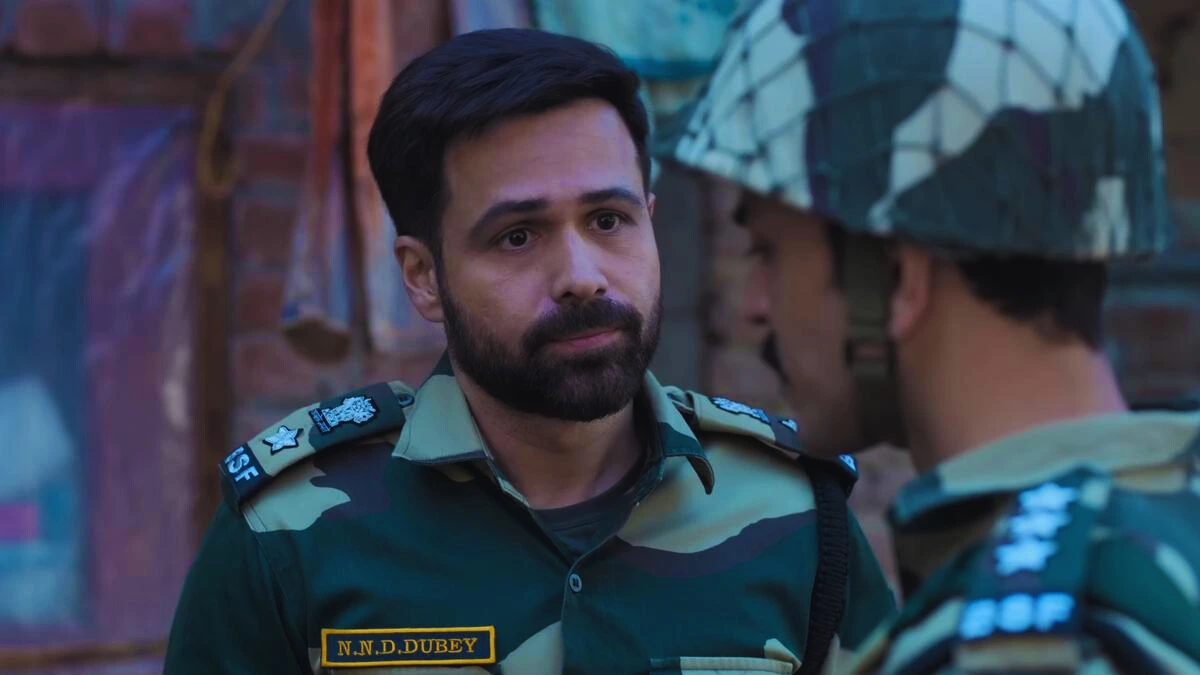Ground Zero Emraan Hashmi Movie Review

- Release Date : 25th April 2025
- Director : Tejas Prabha Vijay Deoskar
- Cast: Emraan Hashmi, Sai Tamhankar, Zoya Hussain, Mukesh Tiwari
- Story: In the aftermath of the 2001 Indian Parliament attack, BSF jawans gather intel and lead a manhunt to eliminate a terrorist.
The release of Ground Zero has been unavoidably overshadowed by the recent deadly terror attack in Pahalgam, which claimed at least 26 lives and heightened tensions across the subcontinent. Though the film is based on real events and set in Kashmir in the early 2000s, its climactic sequence — a late-night raid on a terrorist hideout by Border Security Force (BSF) jawans — is likely to resonate with the current atmosphere. This connection may benefit the film commercially, boosting its theatrical prospects, even as it blurs the clarity of its message. In the present climate, many viewers are likely to overlook the film’s more nuanced elements.


This was hinted at in the film’s trailer. “Is only the land of Kashmir ours, or its people too?” asks BSF commandant Narendra Nath Dhar Dubey (Emraan Hashmi). It’s a poignant question, especially in today’s charged atmosphere, where allegations of complicity are being directed at the Kashmiri people, alongside threats and attacks on Kashmiri students in other parts of the country. Ground Zero sets itself apart from films like The Kashmir Files and Article 370. In tone and spirit, it’s closer to Shershaah—a patriotic, straightforward biopic that, while simple-minded in its narrative, expresses a fleeting yet genuine concern for local lives.
Posted in Srinagar in 2001, NND Dubey led a two-year operation to eliminate Ghazi Baba, a Jaish terrorist and the alleged mastermind behind the 2001 Indian Parliament attack. The team eventually tracked him to a safehouse in downtown Srinagar and launched a nighttime raid. The ensuing gun battle lasted for hours, during which one of the officers, Balbir Singh, was killed in action. In 2004, Dubey was awarded the Kirti Chakra, India’s second-highest peacetime gallantry award.
For its first 40 minutes or so, Ground Zero—directed by Tejas Prabha Vijay Deoskar and written by Sanchit Gupta and Priyadarshee Srivastava—resembles a typical Hindi action film set in the Valley, with one notable exception: Pakistan is conspicuously absent from the narrative. Instead, the film centers on the BSF and focuses primarily on issues of internal security. In his introductory scene, Dubey engages militants at mid-range while also risking his life to save a child, establishing his modus operandi—tactical efficiency coupled with an effort to minimize civilian harm. It’s a rosy, idealized portrayal of how paramilitary forces operate on the ground: door-to-door searches, reprisal attacks, the chaos of crowd control during protests, and a stray warning shot that lodges in the neck of a fleeing youth.
When a young boy is injured by Dubey’s gun in Ground Zero, it turns out to be part of a larger plan. Husain (Mir Mehrooz) becomes his informant within the ‘pistol gang’, a local rebel group responsible for the deaths of 70 jawans. Husain—a cheerful, misguided youth who ultimately chooses to lay down arms after tasting halwa made by Dubey’s wife—serves as the film’s emblem of de-radicalisation. “We are not here to beat them but to reform them,” Dubey tells his men. To ensure our hero doesn’t come across as overly naive or soft-hearted, the film includes a late scene in which he interrogates a suspect who attempts to exploit his compassion—only for Dubey to call his bluff and shoot him in the leg.
The Pahalgam attack has raised serious concerns about intelligence failures. It’s striking, then, that Ground Zero grounds its procedural narrative in street-level intelligence gathering. An early lead that Dubey takes to Delhi is casually dismissed by the IB chief, who scoffs, “Leave intelligence to us.” Back in Srinagar, however, Dubey makes a breakthrough by studying maps, decoding radio transmissions, and drawing on his deep understanding of local civic life. The film’s action set pieces are few and functional—nowhere near the high-octane choreography of Uri: The Surgical Strike.
Deoskar’s visual portrayal of Kashmir feels limited and unimaginative; several frames seem as though they could have been lifted, with just a few clicks, from other films. The dialogue fares even worse—at one point, a terrorist declares, “Aaj mauka bhi hai, dastoor bhi,” a line so clichéd it borders on parody. The BSF jawans include Sikhs, Malayalis, Bengalis, and Rajasthanis, yet none of them—apart from Dubey—are meaningfully developed. The film reserves its more complex reflections on the Kashmiri situation for private conversations among officers. When a swarm of reporters confronts Dubey, it’s his wife, played by Sai Tamhankar, who steps in to silence them.
In a film filled with sudden attacks, the biggest curveball thrown at the audience is this: Emraan Hashmi as a moral warrior. Once known for playing smirking playboys and charming crooks, Hashmi brings a sharp, steady presence to Ground Zero. Yet his subtle, restrained performance might have been better suited to a less combative era. A belated line like “Pehredaari bohot ho gayi, ab prahaar hoga” (“Enough patrolling, now comes the strike”) feels like obligatory genre talk rather than a natural character beat. Hashmi truly shines in the shades of grey.
